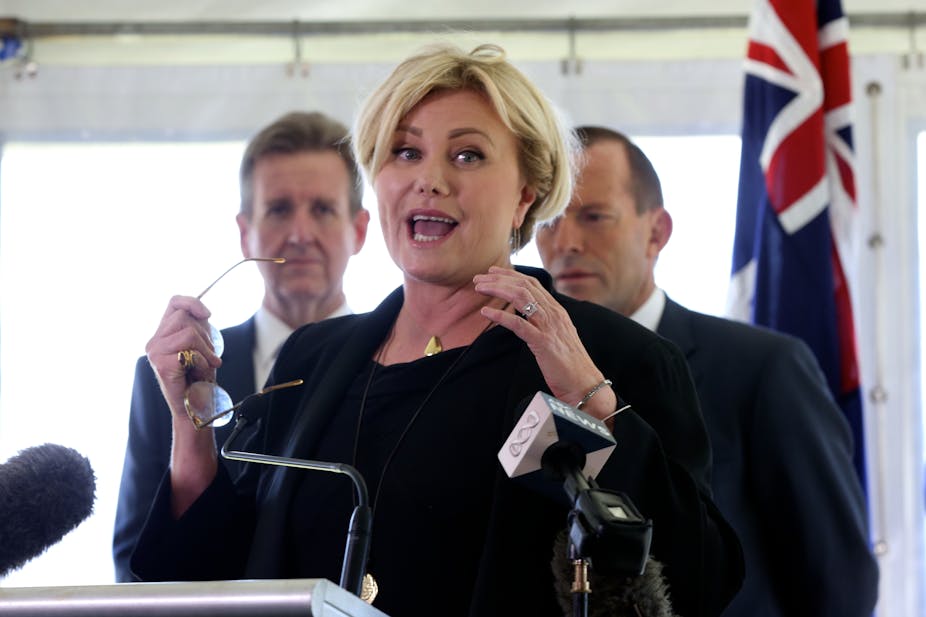
 The Australian government seems intent on lessening protections for children adopted overseas despite national and international evidence showing greater protection is needed.
The Australian government seems intent on lessening protections for children adopted overseas despite national and international evidence showing greater protection is needed.
Two important reports on inter-country adoption were released late last month: a report by UNICEF and one by the Legislation Committee of the Senate Standing Committees on Legal and Constitutional Affairs. And they couldn’t be more different.
The Hague Convention and why it matters
The Hague Convention on inter-country adoption has been regulating inter-country adoption for decades. It protects children, their families and adoptive families.
The Australian Citizenship Amendment (Intercountry Adoption) Bill, supported by the Senate committee, treats countries not party to the convention in the same way as countries that are. It assumes bilateral arrangements (between signatories to the convention, including Australia, and a non-Hague country) are as good as bilateral agreements (between Hague countries) when it comes to protecting children. In practice, there is a vast difference.
Non-Hague countries are not party to the convention because minimum standards that ensure the interests of children in inter-country adoption cannot be met.
Although expert evidence to the Senate committee inquiry was unanimous – that the proposed legislation posed unnecessary risks to children – the committee recommended passing the Bill. Only the Greens issued a dissenting report.
‘Arrangements’ are not ‘agreements’
The committee recommended that the:
best interests of the child be the paramount consideration in intercountry adoption processes, be explicitly articulated in Australia’s bilateral arrangements and, where relevant, in the related legislation and regulations.
But this very Bill guarantees less protection for children in Australian legislation.
The UNICEF report provides clear evidence that bilateral arrangements are not the same as agreements. They offer fewer protections, especially when it comes to money and standards, and show a “fragile respect” for the interests of children.

The author of the UNICEF report, Nigel Cantwell, explains how bilateral arrangements fail on a number of fronts. Under bilateral arrangements, the interests of children are not the common purpose. Instead, both countries focus on streamlining adoption and legitimising a process outside the convention. This provides no incentive to lift standards to comply with the convention.
Both the UNICEF and Australian research shows that receiving countries like Australia do place pressure on sending countries and compromise standards to satisfy the demand for a steady flow of children.
The UNICEF report goes further. It explicitly states that no country has ever asked another to adopt its children and that simplistic, paternalistic approaches are dangerous.
Arrangements with non-Hague countries and processes that aim for quicker, easier and less regulated adoption place market demands and compromised standards before children.
Arrangements are designed “to fit”. They excuse shortfalls such as the role of money (and trade relations) and fail to meet the rights of children as set down by the Convention on the Rights of the Child and the subsidiarity principle of the Hague Convention on inter-country adoption.
Adoption’s impacts are for life
There is agreement, however, on the committee’s final recommendation. Governments are urged:
to ensure that adequate resourcing and priority is provided for follow-up monitoring and support to ensure that it fully addresses Australia’s obligations to adoptees throughout the adoption cycle.
The authors emphasise that the adoption cycle is life-long and not limited to the immediate post-adoption period.
There is no sign that Australian governments are listening to inter-country adoptees who have been calling for better access to extended, funded support and a stronger voice in policies that affect them.
An independent study on post-adoption support is underway. This is expected to provide some direction on the types of support needed in Australia.
The problem is the Bill assumes rights are properly addressed in bilateral arrangements. The amendments should be considered as one part of a suite of proposed changes. Abbott’s close relationship with lobbyists, widely reported in the media, raises unanswered questions about the adoption system he is putting in place.
According to Cantwell, policies in receiving and sending countries must take into account that poverty does not justify adoption and that a child has a right to his or her existing family. A “right to a family” and “a right to be adopted” do not exist in international law.
A child’s family includes the adoptive family only after an adoption, which shines a light on the disproportionate influence adoption lobbyists have on the practice in sending and receiving countries of children.
The UNICEF report calls for more stringent, systematic processes and counsels against establishing programs with non-Hague countries. The Hague Conference emphasises ethics and the professional capabilities of inter-country adoption services.
Conflicts of interest abound in both industry and government. One newly accredited organisation – yet to transition from lobbyists to professional service – has openly opposed research on post-adoption support and censored information about the post-adoption research.
How the interests of children can remain paramount in the changing Australian context is yet to be adequately explained or assured.
Source : https://theconversation.com/australia-puts-children-at-risk-by-freeing-up-the-adoption-market-31064
